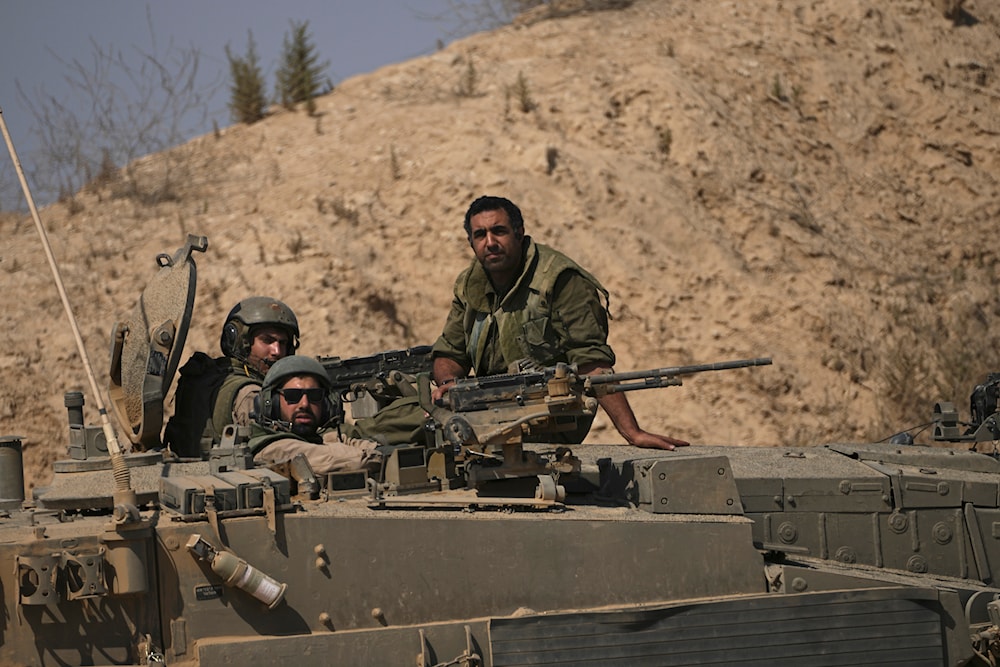IOF say shelling in Gaza requires clearance due to shortages
Israeli newspaper Yedioth Ahronoth reveals that the Israeli occupation forces are suffering from massive shortages in shells.
-

Israeli occupation soldiers sit on their vehicle near the Gaza Strip in southern occupied Palestine, July 12, 2024 (AP)
An Israeli soldier engaged in the Gaza conflict revealed significant challenges faced by the forces due to an ammunition shortage, a report by the Israeli newspaper Yedioth Ahronoth revealed Tuesday.
According to the soldier, the process of launching artillery shells now requires officer approval due to the limited supply.
The soldier explained that the forces in Gaza are requesting specific types of shells but are often supplied with different types. He added, "They tell us to make do with what we have."
He noted that even the most junior soldiers are aware of the severe shortage, but the military leadership is reluctant to acknowledge the reality.
The IOF announced Monday that they would delay the integration of female tank crew members into the armored corps in Gaza due to a significant shortage of tanks and ammunition, many of which were damaged in recent confrontations, Israeli newspaper Yedioth Ahronoth reported Monday.
This decision comes in the wake of a petition demanding that female tank instructors be allowed to join combat forces within Gaza after they participated in the confrontations that ensued in the wake of Operation al-Aqsa Flood on October 7.
The Israeli Chief of Staff decided to postpone the integration of female soldiers into the maneuvering armored corps until November 2025 due to the severe shortage of tanks and ammunition resulting from the prolonged war.
According to the petition, the Israeli occupation forces had planned a pilot program for female tank crew members starting in October, but due to the war's constraints, it has been postponed until November 2025.
This marks the first time the IOF has admitted to losing a significant number of tanks in the war on Gaza and suffering from a shortage of shells and many soldiers and commanders who were either injured or killed in battles.
'Constraints' impeding program
"There are many constraints that will prevent the inauguration of the integration program next year, including the inoperability of many tanks, a shortage of ammunition, and a significant number of recruits needed to fill positions in the armored corps in the south and north, not as part of the program, and a shortage of training personnel," the Israeli occupation responded to a Supreme Court petition.
"Objective difficulties have arisen due to the fighting in the Gaza Strip and other fronts, especially in the [IOF's] combat units, where command and systemic attention is focused on the war," the response added.
"Many tanks were damaged during the conflict and are currently out of commission, not available for combat or training, and there are no new tanks expected to join the armored corps soon. This means the existing number of tanks in the armored corps is insufficient for both war efforts and simultaneous pilot implementation," it said.
Moreover, the IOF underlined that they are spread very thin in terms of the ammunition and resources needed for the maintenance of the equipment. Moreover, this comes as the IOF is conducting rapid training and recruiting of unusually large forces to complete missing teams immediately. However, due to the ongoing fighting on all fronts, there is not enough command attention to support the program.

 3 Min Read
3 Min Read








